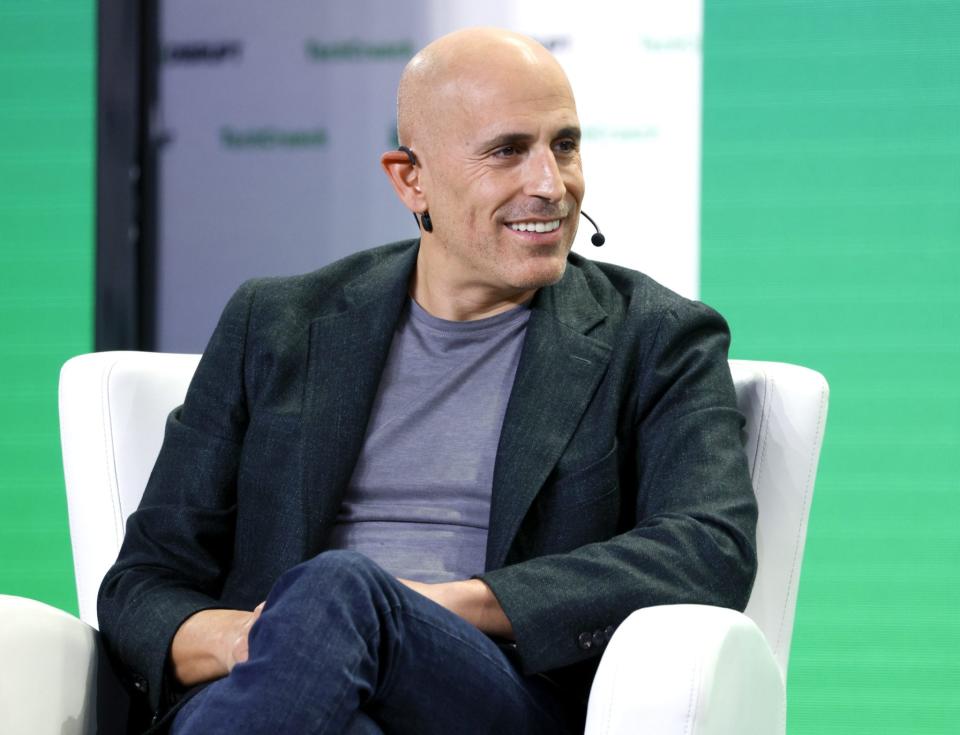Marc Lore’s startup Wonder is opening food halls inside Walmart stores, in a sequel to his e-commerce startup’s $3 billion acquisition by Walmart

Marc Lore sold his last startup, Jet.com, to Walmart for $3.3 billion and then oversaw the retailer’s e-commerce business for the next four years before leaving to work on various projects in 2021. Now he’s back working with Walmart, but as an entrepreneur.
Lore’s latest company, a heavily-funded restaurant concept called Wonder, recently opened a pilot location inside one Walmart supercenter, and has plans to open two to three more restaurants inside the retail chain this year, Fortune has learned.
Wonder lets diners choose from various cuisines or “restaurants” from one location and in one order—some in partnership with high-profile chefs like Bobby Flay or Marcus Samuelsson, others developed in-house—with a delivery-first focus. Lore, the CEO and a master fundraiser, has helped Wonder raise nearly $1 billion in funding since its 2018 founding. Wonder has raised $200 million of those funds from Lore himself, in both equity and debt, multiple sources told Fortune. And his financial backing of the company will increase in a new funding round expected to total as much as $500 million, these people said.
The match between Walmart and Wonder, which originally launched with a focus on delivering what it called “fast fine” meals to customer homes, might not seem natural. But Wonder is trying to prove Wonder's food-hall-style model is “adaptable,” according to Daniel Shlossman, a former Sweetgreen executive who joined Wonder last year as growth and marketing chief. And the close history between Walmart and Lore, who also is the co-owner of the NBA’s Minnesota Timberwolves franchise, certainly helped.
The first Wonder pilot test with Walmart is a 750-square-foot storefront inside a supercenter in Quakertown, Penn., that offers eight cuisines with a fast-casual bent (compared to a Wonder New York City location that might offer two dozen “restaurants”) out of the one Wonder space. One is Tejas Barbecue, serving brisket and pulled pork sandwiches in partnership with the beloved Texas-based restaurant of the same name. But meals from other options like Limesalt are developed by Wonder’s own chefs.
With the Quakertown opening inside Walmart, Wonder is expanding beyond its existing network of 10 storefronts. Two more Wonders are scheduled to open in Walmart stores in New Jersey in May—one in Teterboro, across from an airport for private jets that Walmart management uses when visiting the NYC metro area, and another in Ledgewood, about 40 miles west of Teterboro. The two companies are currently discussing a potential fourth location for a pilot test, according to Shlossman. In total, Wonder plans to open 25 new locations in the tristate area this year, Shlossman told Fortune.
Wonder acquires the rights to use a renowned chef’s likeness and recipes, typically through cash payments and equity in the startup. The model initially focused on delivery, with meals finished in vans outside of customer doors. But a little over a year ago, the company ditched that model and laid off hundreds of employees in a massive pivot. While the company still says it is delivery-first, it no longer utilizes the delivery van model; customers can select pickup or delivery out of their closest Wonder storefront or eat on-site in small seating areas.
In the first five days of operation inside the Quakertown store, the ratio heavily skewed toward on-site dining versus takeout or delivery.
“We think the product-market fit works everywhere,” Shlossman said.
Do you have thoughts on this topic or a tip to share? Contact Jason Del Rey at jason.delrey@fortune.com, jasondelrey@protonmail.com, or through secure messaging app Signal at 917-655-4267. You can also message him on LinkedIn or at @delrey on X.
This story was originally featured on Fortune.com

 Yahoo Finance
Yahoo Finance 